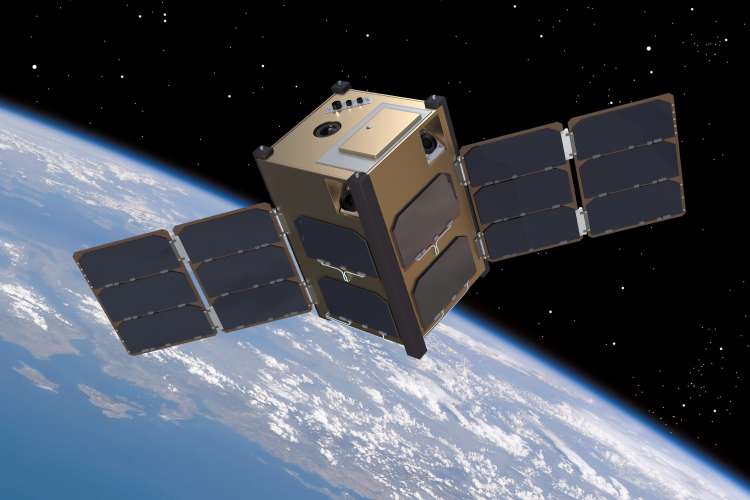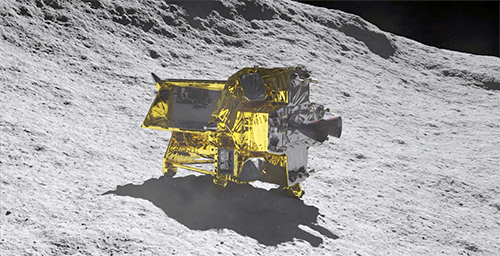
When you think of artificial intelligence, you might think of human-like robots bent on destroying humanity. Or perhaps you think about something like the new AI text and image software that has arisen over the last year. While the AI we have now might not quite be at the levels it is in Sci-Fi movies, it still will have a drastic impact on the world and the way we live. From increased efficiency that will reduce error to the effects it will have on jobs in almost every industry, AI is changing our world fast. And who knows how far we are from those Sci-Fi movies?
What is AI?
AI, or artificial intelligence, can be defined by Encyclopedia Britannica as “the ability of a computer or a robot controlled by a computer to do tasks that are usually done by humans because they require human intelligence and discernment”. AI can include complex software like ChatGPT that can write out entire paragraphs or answer complicated questions off of simple prompts or Midjourney which can generate a new image or art off of just a prompt. However, it can also be simpler technology like a robot sorting packages or a self checkout in a grocery store using object recognition. Simply put, it’s just machines able to do human tasks that require some intelligence. The use of AI raises a lot of ethical questions and concerns about the future of many jobs. Nonetheless, it also has a load of positives to it.

The major benefit of AI is that it will increase efficiency and productivity. AI is, quite simply, just able to do certain things more accurately and far quicker than humans can. Human error is something that is bound to happen. However, with machines and complex algorithms, the amount of mistakes made is almost none (some can happen due to malfunctions or other circumstances). AI is also much faster at completing tasks than humans. Humans don’t always work at the fastest pace they can and can be inconsistent in their ability to complete tasks because we get tired, worn out, and other things going on in our lives impact us. AI will typically work at the fastest pace it can at the same consistency. AI is just overall faster; it can process and analyze data that would typically take hours for humans to get through in just a matter of seconds. The lack of mistakes on tasks mixed with the speed and consistency of AI increases efficiency overall. So many tasks that were once difficult for people to complete can be done in seconds with AI, which can improve people’s quality of life and save them time.
While one of the increasing worries when it comes to AI is the large number of jobs it’s predicted to take from people, AI will also bring in a load of new jobs. After all, AI requires people to program it, test it, work on the software, research it, focus on ethics, etc. This will bring in a wide variety of new jobs, largely in the technology field. It’s unclear exactly how many jobs it will add but there has already been a large increase in AI-related jobs. According to CNBC, there was an 1000% uptick in AI-related jobs posted on the job marketplace Upwork in the second quarter of 2023 as compared to last year. While Upwork is a growing site and job postings in almost all fields are up about 230% from the same time last year, the increase in AI-related jobs is clearly much larger. As AI continues to be implemented into society more and more, it’s not unreasonable to assume that the number of people working in the field of AI will increase.
There are many dangerous professions out there where humans are at risk of getting hurt. AI can complete many of their dangerous tasks instead which removes the risk of people getting hurt. Jobs like bomb defusal or the handling of dangerous chemicals and materials would normally put the people with those jobs at extreme risk but now there are robots like TALONS and CBRN Patrol Bots which can handle these tasks and make them easier. The technology will continue advancing which will be able to reduce the risks involved in this profession and many others that typically endanger people.
AI is also being used in the military to both reduce the risks to service members and increase efficiency. Many weapons and vehicles use some level of AI in their operations. AI-powered drones can be used to do reconnaissance and obtain intelligence that are key to making decisions in battle and it can even sift through this intelligence to find key pieces of information.
A massive positive of AI is its usage in the medical industry. AI has been used to aid the detection of many different types of cancer during screenings. For example, AI has been programmed to look at the scans of thousands of people with certain types of cancer in order to accurately detect tumors and understand when a scan detects cancer. While doctors will often be able to detect these tumors themselves, this can save them time and prevent doctors from making mistakes and potentially missing them. AI is being used in screenings for all kinds of cancer including breast cancer, prostate cancer, lung cancer, and brain cancer. AI can even be used to predict the likelihood someone is of getting cancer. MIT and the Mass General Cancer Center have created an AI called Sybil. Sybil has been trained using low-dose chest computed tomography scans to look at a scan of someone’s lungs and accurately detect whether someone will develop lung cancer within the next six years. This is groundbreaking technology that will allow people to get ahead of cancer before it even develops.
AI also has uses within surgery that are extremely beneficial to surgeons and help make the surgery go smoother. AI that has been trained by watching thousands of surgeries can use automatic systems to detect the exact location a surgery needs to be done in and provide real-time oversight. For example, the AI can alert the surgeon if something is going wrong in the patient’s body or if the surgeon is unintentionally doing something they shouldn’t. Before a surgeon makes a decision during surgery, AI can verify if it’s accomplishing exactly what the surgeon wants to do by informing them of potential outcomes and whether it’s safe to operate. AI can also complete precise tasks that the surgeons may not be able to do easily like operating on a small area in a patient’s body or even more simple tasks like applying bandages. AI being able to complete some of the incredibly intricate aspects of a surgery will reduce mistakes and ultimately save lives. AI is beginning to be able to complete detailed surgeries entirely on their own. The first Laparoscopic Surgery (a surgery requiring small cuts in the abdomen or pelvis) done by entirely AI was completed on a pig in 2022. While this hasn’t been implemented for operation on humans yet, it’s likely it will be used in the future.

One of the major concerns with AI is how it will impact the job market. AI is effective at doing a lot of basic (and even many less basic) tasks. If AI is able to do lots of tasks in industries like retail, data analytics, finance, manufacturing, technology, law, customer service, or many of the countless other industries it can operate in, then millions of people will lose their jobs. For example, instead of a cashier, a company could use AI for a self-checkout. Unlike the cashier, the AI doesn’t need to get paid, won’t require breaks, and will have any human error which makes things more efficient. Since most companies are profit-driven, they’ll use AI instead of a person to reduce costs which will leave a large majority of the 3.21 million cashiers in the US (according to Data Usa) out of work. This is just an example of one job that AI can do that will impact the lives of millions; now imagine that happening in nearly every industry. According to a recent study by the Brookings Institute, about 24% of jobs are at high risk to AI meaning that 70% or more of their tasks can be completed by AI, 36% of jobs are medium risk to AI meaning that between 30%-70% of their tasks can be done by AI, and 40% of jobs are at low risk to AI because less than 30% of their tasks can be completed by AI. In addition, according to the World Economic Forum “Future of Jobs Report 2020”, 85 million jobs worldwide are predicted to be replaced by AI by the year 2025.
Some of the industries that have raised a lot of ethical questions about AI include art, writing, and photography. There are AI apps and websites out there that can make entire pieces of art or fake photos within seconds based on basic prompts (such as Midjourney, Dreamstudio, NightCafe, Stable Diffusion, etc.) There are also apps or websites that can write anything you want, from movie scripts in a Shakepearean format to slam poetry about Star Wars, based on a simple prompt (such as ChatGPT, Jasper, Sudowrite, Rytr, etc.) However, they don’t just make the art and writing up out of thin air.
The AI is trained based on analyzing billions of samples of art, photographs, and writing online. They then use those as reference to best try to make something that is original and what you wanted. In the end though, all the work done by AI is just regurgitated from using everything on the internet as a reference to best make something your prompt asks. The artists, photographers, and writers whose work is used to train AI don’t give permission for their work to be used. So not only does AI put the jobs of artists and writers at risk, it utilizes their work without giving credit or payment. There have even been cases where AI has blatantly plagiarized other works. These points lead to ethical questions about the usage of AI generation of pictures and writing and how it uses other people’s work as reference.
Not to mention, it can be argued that AI takes the human aspects of art and writing and throws them away. While it may be able to replicate a specific object or style, any kind of art is largely about meaning and the emotions of the artist themselves. With AI, you’re taking away the fact that someone made it and poured their heart out on it to express their message to the world.
Certain AI softwares can answer any question you ask it. They do this through using analysis of information off most of the internet, typically filtering out many things. However, the information doesn’t have an 100% accuracy rate and AI has been given out false information in some cases. In addition, the information on the internet may have general biases. Therefore, the information the AI provides may reflect those biases and push them out to people who use them. This could potentially be more subtle and more of a problem than the misinformation or bias we see on the internet because you don’t have a wide array of sources to look at.
AI, like most concepts, isn’t good or bad. It clearly has both its advantages and disadvantages. The question that remains is: how can we optimize the advantages of AI while reducing its’ disadvantages? At the moment, there’s really no definitive answer. Perhaps regulation can be used to reduce many of the disadvantages in AI, specifically when it comes to AI taking human jobs. For example, the WGA strike which just ended was a major win in the fight to put in place regulations for AI usage. While not necessarily the main purpose of the strike, the terms in the strike heavily focused on making sure AI wouldn’t be used in screenwriting. This can ultimately allow a lot of writers to keep their jobs in the future and will preserve most of the human creativity and personal storytelling in screenwriting. It’s not a big leap to argue that in other industries similar strikes or regulations can be done.
Perhaps it’s the role of the governments to reduce some of the problems that AI brings. Maybe governments can alter copyright law when it comes to using things like pieces of art to train AI without permission from the original creator. They could make that illegal and require permission and/or compensation from the creator of the content being used to train it. While there hasn’t been substantial success in even regulating misinformation online, maybe the government can put laws in place that require people to be warned of AI bias and misinformation while using AI software. Perhaps there are even ways in the future that bias and misinformation can be filtered out of AI software. If a lot of AI programmers work on it, it’s definitely possible advanced technology can be used to tackle that problem.
The rise of AI brings out a lot of problems spanning a multitude of different aspects of society. There’s not gonna be one simple fix to get rid of any problems it brings. Over the next decade, AI will increasingly be implemented into our society. As a society, we’ll be hard working towards handling its faults. For now, we can just sit back and enjoy the advantages of AI but not without being wary of it. Who knows what other issues and benefits it may bring?
Your donation will support the student journalists of Lindenhurst Senior High School. Your contribution will allow us to purchase equipment and cover our annual website hosting costs.







